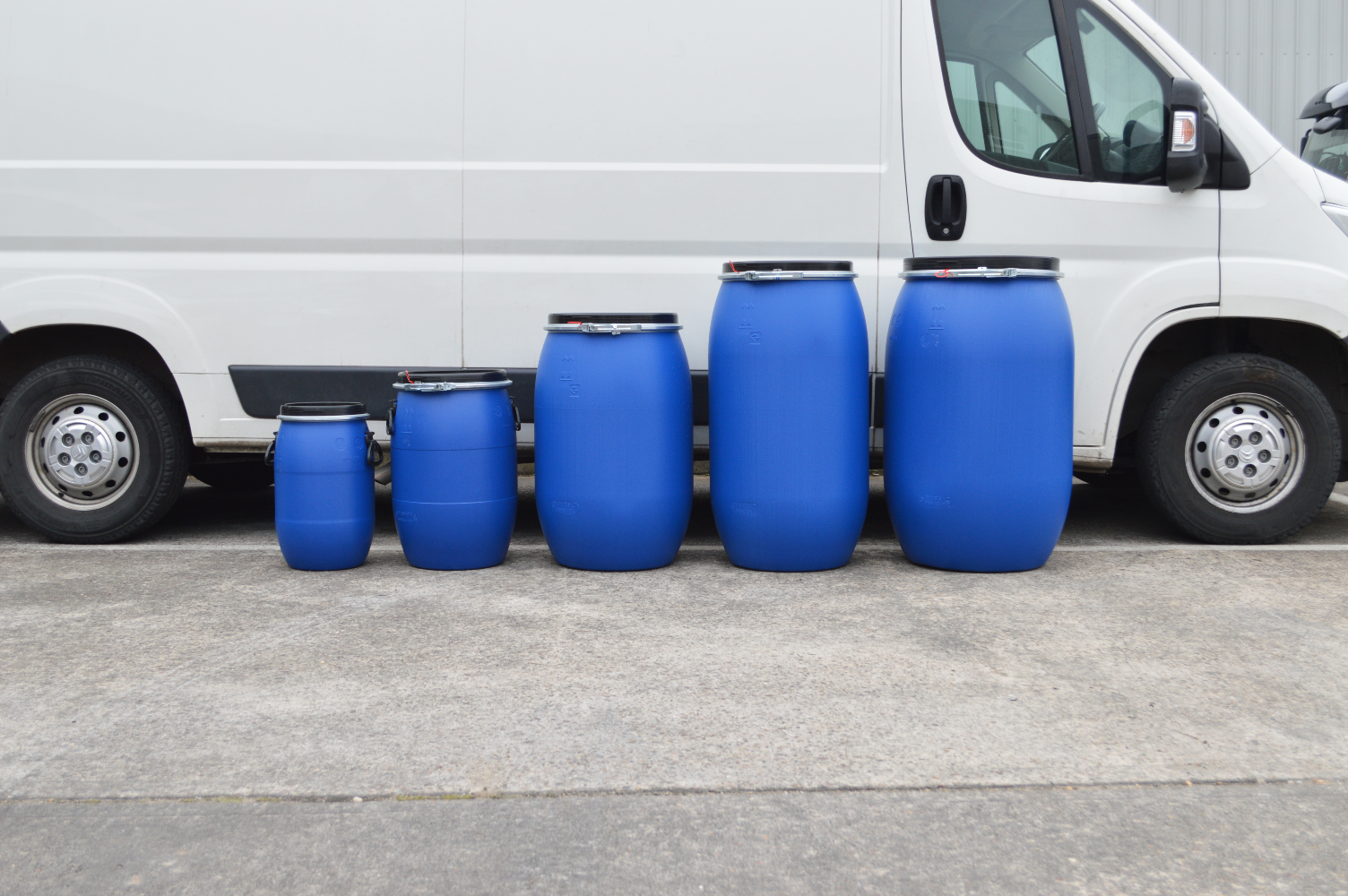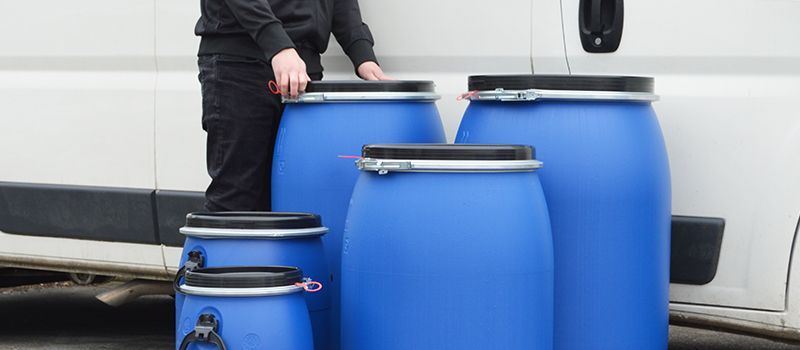Plastic blue drums are extremely common in the storage and transportion of goods due to their versatile nature. They are used in different industrial sectors and are commonly used to store chemicals such as acids or the food grade version is used in the food industry to store ingredients.
Plastic drums are an ideal option for a wide variety of applications due to their durability and ease of use. The HDPE material offers several benefits over traditional metal drums, including better resistance to corrosion and impact damage. In addition, plastic drums are lighter in weight and have better-sealing properties, making them ideal for storing and transporting liquids.
However, if you are in need of a plastic drum for your business, you might have come across two different types of plastic barrel and might not be sure of which one is the right one for you. In fact, there are two major types of plastic drums used in the industrial sector: tight head plastic drums and open head plastic drums.
What is an open head plastic drum?
The open head drums - open-top drum – has a removable top to give you easy access to the content and it’s your choice whether to leave your open-head plastic drums open or sealed with its lid.
Open-head drums are often used for packaging or transporting thick liquids, hazardous wastes or chemicals, powders and semi-solids, as it’s easier to get the goods in or out. Food products are also often stored in an open-head drum. Please note, it’s important to always check whether the plastic drum is certified to hold dangerous or hazardous chemicals or substances.
Plastic Open Head Drum Barrel - 30 to 220 Litres - Kingfisher Direct Ltd

What is a tight-head plastic drum?
Tight-head drums are sealed at the top, meaning there is no way to access their content aside from one or two designated openings that are used to funnel liquids in or out. Therefore, this type of plastic drum is used to store products that do not need to be accessed regularly.
Tight-head drums are more suitable for storing low viscosity liquids, such as reagents, acids, bases, detergents, bleach, softeners, coolant, cleaning solutions, swimming pool treatment or large quantities of a beverage as they provide more security than the open-head drum.
220 Litre UN Approved Plastic Tight Head Barrel - Kingfisher Direct Ltd
The best way to get liquid into your tight head drum is using a funnel (JUSTRITE® FUNNEL - Kingfisher Direct Ltd), whist you will be using a pump to get the substance out of it. Barrel pumps are designed to provide an easy and safe way to transfer and dispense any liquid from your plastic drum.

